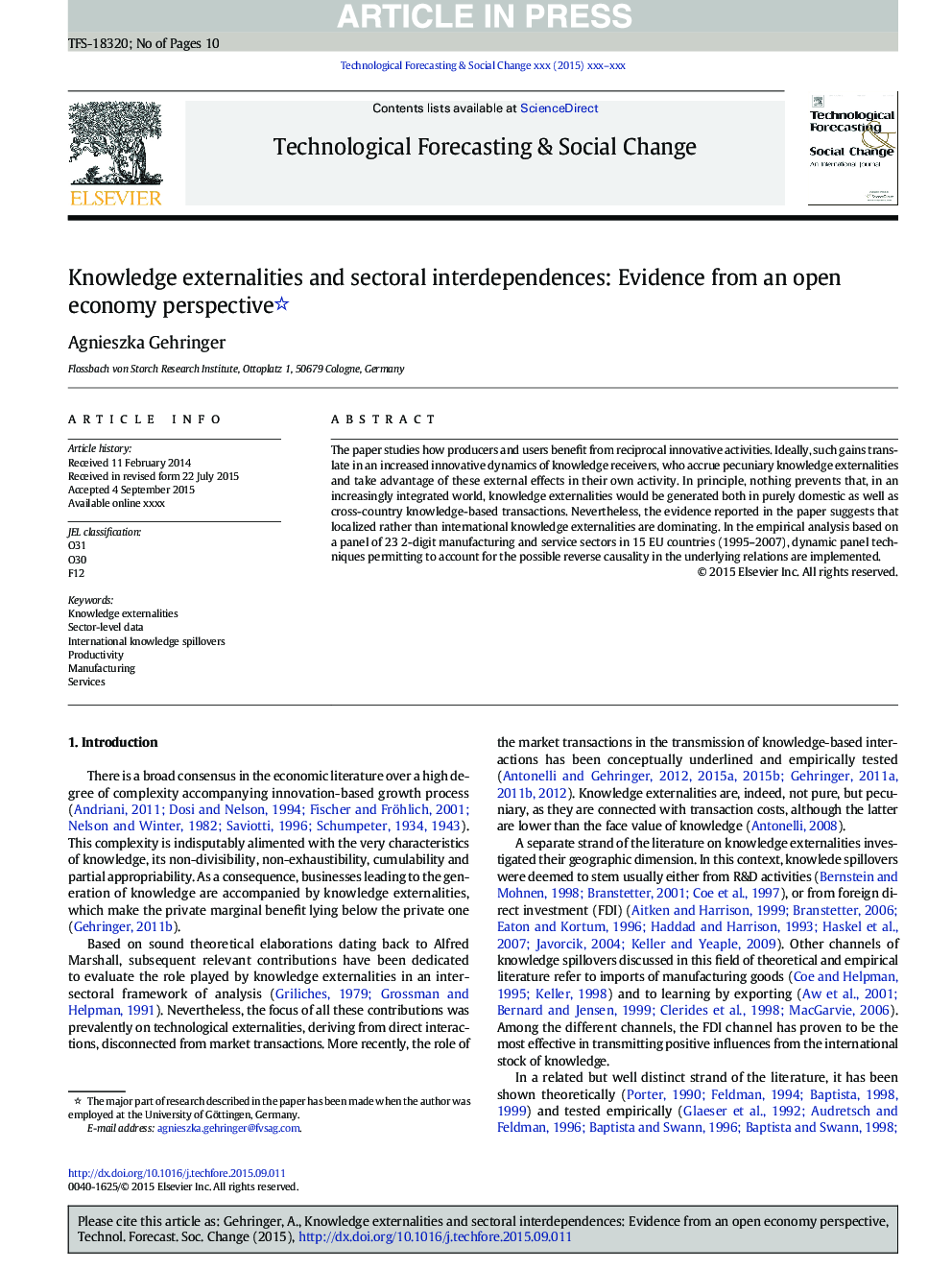| Article ID | Journal | Published Year | Pages | File Type |
|---|---|---|---|---|
| 7256291 | Technological Forecasting and Social Change | 2016 | 10 Pages |
Abstract
The paper studies how producers and users benefit from reciprocal innovative activities. Ideally, such gains translate in an increased innovative dynamics of knowledge receivers, who accrue pecuniary knowledge externalities and take advantage of these external effects in their own activity. In principle, nothing prevents that, in an increasingly integrated world, knowledge externalities would be generated both in purely domestic as well as cross-country knowledge-based transactions. Nevertheless, the evidence reported in the paper suggests that localized rather than international knowledge externalities are dominating. In the empirical analysis based on a panel of 23 2-digit manufacturing and service sectors in 15 EU countries (1995-2007), dynamic panel techniques permitting to account for the possible reverse causality in the underlying relations are implemented.
Keywords
Related Topics
Social Sciences and Humanities
Business, Management and Accounting
Business and International Management
Authors
Agnieszka Gehringer,
